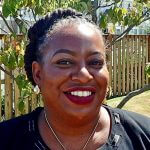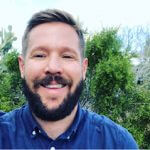Aly Shaw
Pittsburgh, Pennsylvania
At the time of this interview, Aly was the Environmental Justice Organizer at Pittsburgh United, a coalition of labor, faith, community, and environmental groups that organizes for economic, housing, and environmental justice in western Pennsylvania. As the organizer of the Our Water, Our Rivers Campaign for the past three years, she has led a coalition to fight for investments in green infrastructure, for safe and affordable drinking water, and against the privatization of the Pittsburgh Water and Sewer Authority. Prior to Pittsburgh United, Aly was a Coro Fellow in Public Affairs where she completed public policy research and community organizing projects for the Sierra Club, the Office of City Councilwoman Natalia Rudiak, and the Pittsburgh Foundation. Aly recently completed her Masters in Public Management from Carnegie Mellon University’s Heinz College. Aly now works at UFCW Local 1776.
This interview was conducted by Carly Schmidt on September 18, 2019. Learn more about Aly’s work at Pittsburgh United.
Can you chat a bit about Pittsburgh United and your role with the organization?
Pittsburgh United is a coalition made up of labor, faith, community, and environmental groups, making us a powerful voice for change in the areas we serve. As an environmental justice organizer, I run campaigns related to environmental justice and we kind of found our footing working on water issues. We’ve been working, specifically, on combined sewer overflow issues. Also, advocating for green infrastructure and new stormwater management technology to mitigate flooding, which is a huge issue here. We started our first campaign in 2008, which came out of these groups coming together to say that green infrastructure is a huge investment and we want to make sure the money is being used wisely and invested in the community. I started three years ago when the water authority was in crisis. We saw increases in our lead levels and the local water authority was under threat of privatization. We took on the Our Water Campaign and now the water authority is functioning well, still public, and providing equitable rates. I am proud to work at this kind of coalition because it involves so many groups and balances priorities well.
What brought you to environmental justice work?
I’ve always wanted to work on environmental issues because I think these are the issues of our time and it is the best work I can be doing. I grew up drinking well water in very rural Pennsylvania, so I’ve always had a deeper relationship to water than most people. I really love being at an organization that cares about workers’ rights and environmental protection, simultaneously. We really bring equity into everything we do.
Is the Our Water Campaign ongoing? What new projects have you adopted?
We’re still involved in Our Water conversations, but we’ve reduced the time and effort because of the strides made in the last three years. We remain active on boards and advisory committees, but we’ve been able to explore other needs in the region. We started a campaign to do something similar in the second-largest water authority, called Wilkinsburg-Penn Joint. This water authority is facing similar problems like aging infrastructure and increasing rates in a low-income community that can’t handle the increase. The water authority is very unpopular and vulnerable to corporations coming in and privatizing. We started doing community outreach in that area, starting with finding out what residents want. I’m excited to be applying what we learned in Pittsburgh in a different area.
What is your approach to engaging this new community?
We started with holding community meetings in Wilkinsburg, which is the lowest income and highest minority population group we’ve worked with. We invited everyone from across the service area. We are also working with another nonprofit and the University of Pittsburgh to facilitate these listening sessions. We wanted to learn what people experienced dealing with the water authority and what it’s like to pay bills with them. We were able to tell the group what is possible because of our work in Pittsburgh. We want residents to decide and feel ownership over what they want to fight for. It looks like this community wants free lead testing and better representation on the board.
We have a lot of coalition-type organizations in our network that are striving for community cohesion. What do you feel that Pittsburgh United does particularly well as a coalition?
I think the great thing about this coalition is that we’re able to get diverse perspectives on everything. Environmental groups in the coalition are experts on water quality and are able to provide a level of comfort to residents. They push me, the organizer, to prioritize water quality. Others work solely in low income communities and know what their constituents can and can’t pay for safe drinking water. There are so many voices at the table, which makes us more powerful in speaking on the behalf of entire communities. Our tagline is “safe, affordable, and publicly-controlled water” and we haven’t compromised on any of these priorities.
You have a long-standing relationship with River Network, mainly our program staff working in the Drinking Water Cohort. What was that experience like?
It’s been so valuable to get to know people working on the same issues across the country. There has been a lot of sad news coming out of Newark (read about Kim Gaddy’s work in Newark here), but through this cohort I learned the context and background for the crisis. We in the cohort have been hearing different reactions from cities and mayors. In Pittsburgh, we were able to get our water authority to commit to replacing lead lines at no cost to the resident. Newark folks in the cohort were surprised by that. It’s so powerful to share what is possible because it’s so easy to get bogged down in your city’s issues and politics. It’s more powerful to be working together than to be fighting separately. I also had a great time in Cleveland at River Rally 2019. It was a great time to be among people who are also nerdy about the history of the Cuyahoga.
What kind of impact would you like to see your organization make in your community over the next 10 years?
One of the best things I’ve seen happen over the past 2-3 years is a willingness by our water authority to do genuine community outreach. They saw people stand up and say that we want our water to be public because it’s ours and we want to be involved in fixing these problems. The water authority is now able to talk to residents. I would like to see that applied to all agencies and city governments. What does it mean to be a democratic public agency? When people have input they have ownership over their water and aren’t angry at the authority for raising rates without public input. We can still do better in this area, but I’d like to see us continue to improve.








